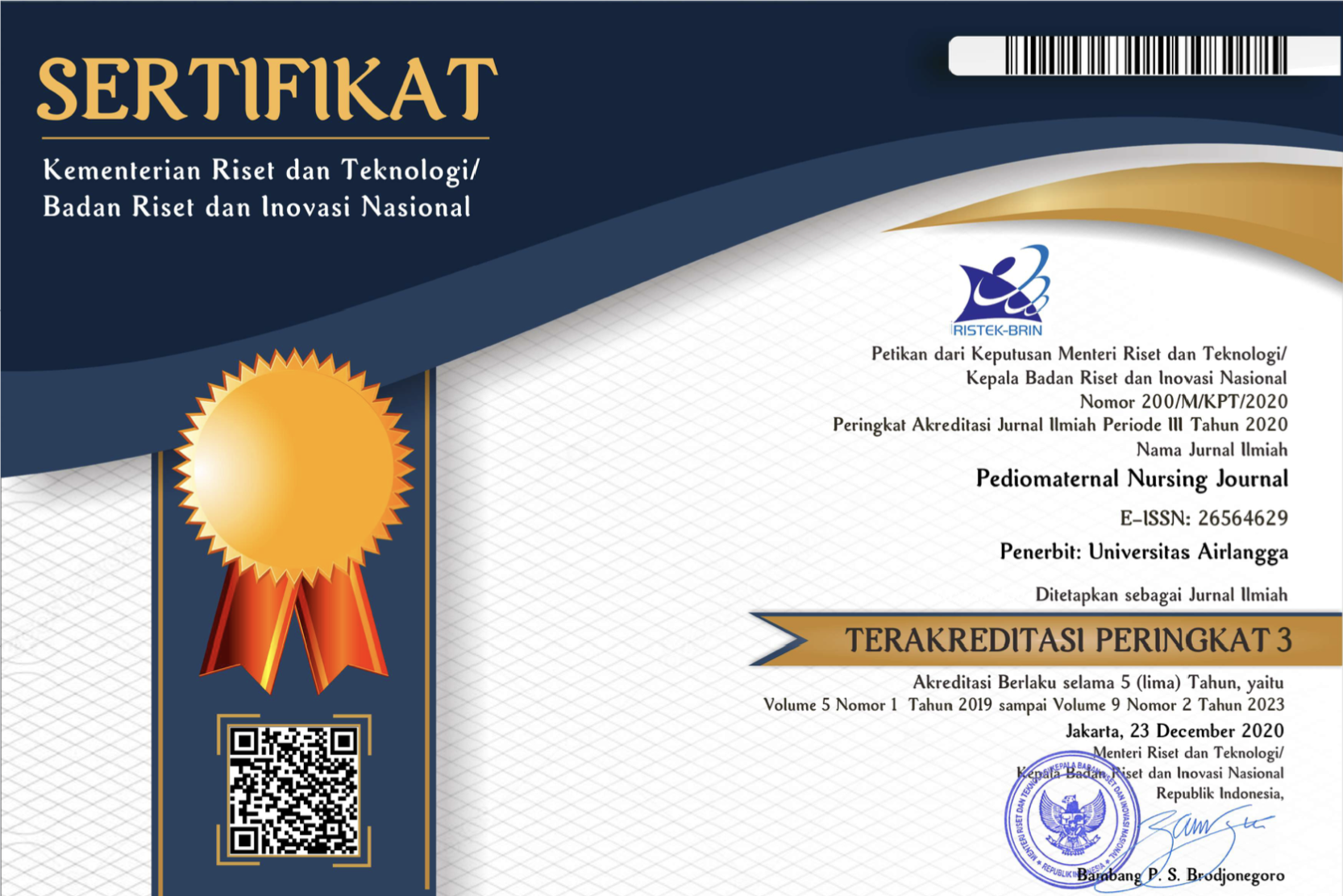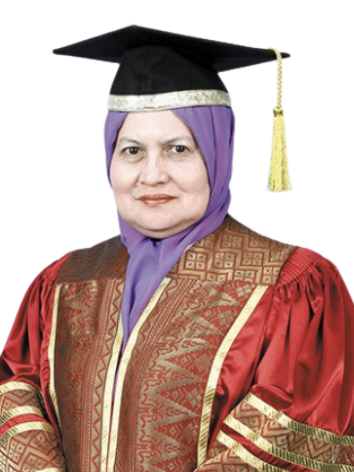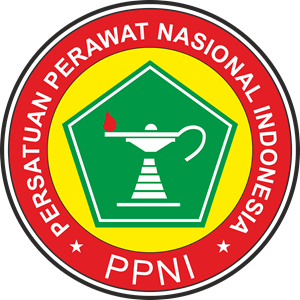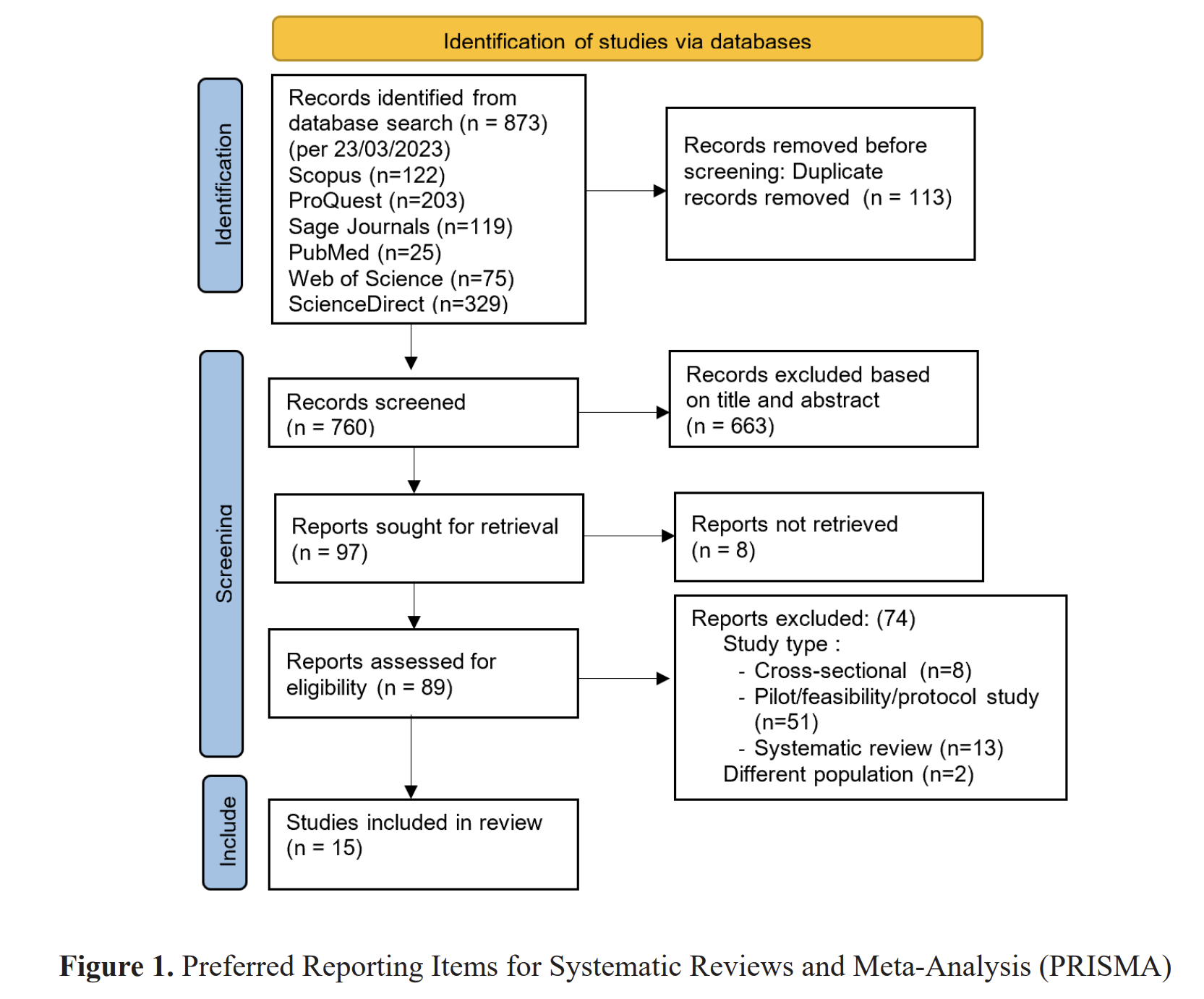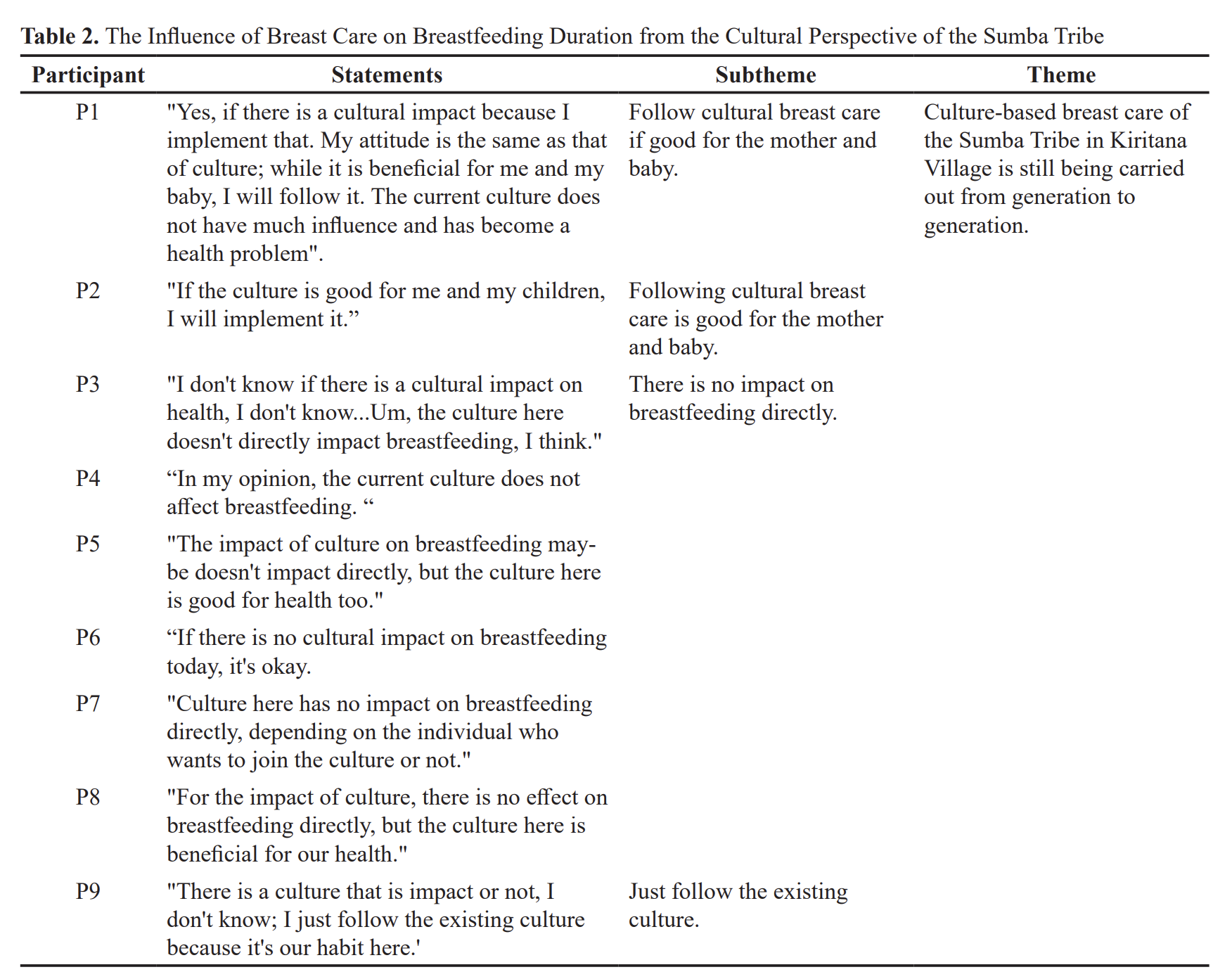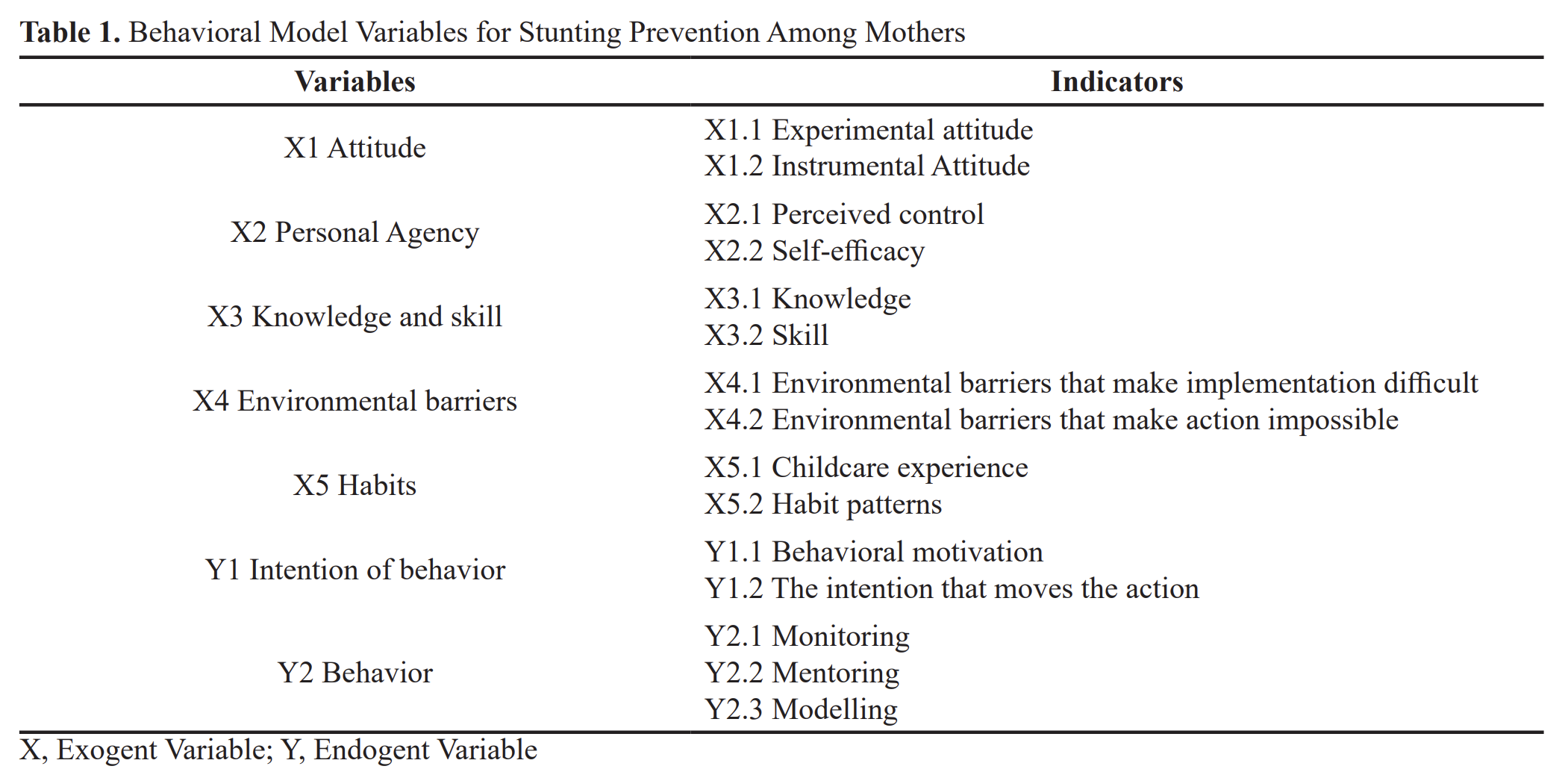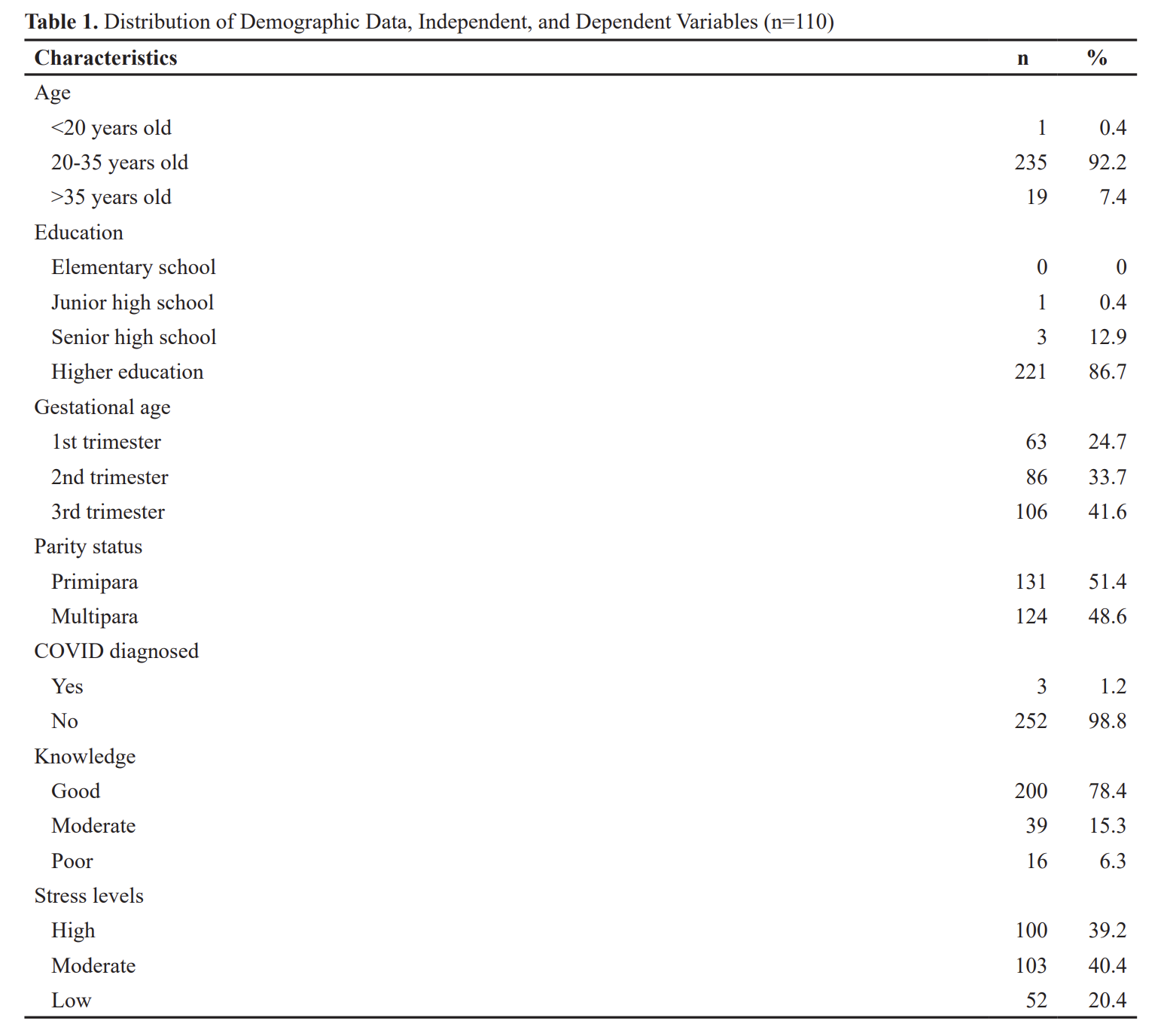Correlation between sibling rivalry toward knowledge and development among preschool in kindergarten
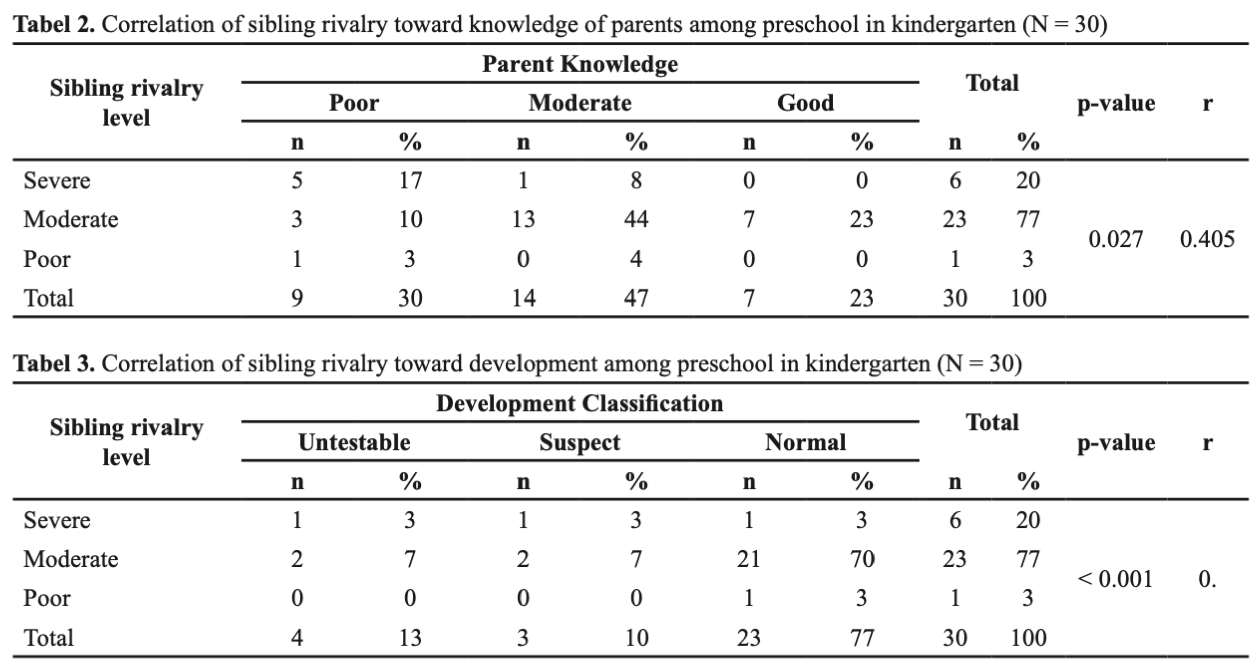
Downloads
Introduction: Preschool is the preoperational phase of the basics of significant mental and emotional development. Sibling rivalry and Parents' knowledge are essential in children's development. Sibling rivalry in preschool can be a problem because their unstable controlling emotion feels jealousy that influences mental effect activity and motivation toward concentration study impacts intellectual potency of the development stage, and can cause development failure.
Methods: This study used a non-probability sampling technique with a cross-sectional approach. The population of this study consisted of 85 parents whose children attended Pembina Kindergarten Kediri for preschool and a sample of 30 parents was taken using purposive sampling. The sibling rivalry was an independent variable; the dependent variables were the level of knowledge and development. Data was gathered using a questionnaire tested for validity and reliability. The Indonesian Ministry of Health's Test Pra Screening Development (KPSP) Standard Questionnaire and Spearman-rho were employed in data analysis.
Results: The study revealed a relationship between sibling rivalry level and knowledge (r=0.405, value =0.027) and development (r=0.722, value <0.001).
Conclusions: Preschoolers should be given a nursing plan to help with the psychological components of developmentally stimulating them. So that preschool development continues to be at its best, early detection of developmental problems should be carried out.
Keywords: development; knowledge; preschool; sibling rivalry
Andriyani, S., & Darmawan, D. (2018). Pengetahuan Ibu tentang Sibling Rivalry pada Anak Usia 5 - 11 Tahun di Cisarua Kabupaten Bandung Barat. Jurnal Pendidikan Keperawatan Indonesia, 4(2), 162–171. https://doi.org/10.17509/jpki.v4i2.13708
Anggraeni, A. S., Mardhiyah, A., & Nurhidayah, I. (2015). Hubungan sibling rivalry dengan cedera pada anak usia balita di Desa Cipacing Kecamatan Jatinangor. Jurnal Keperawatan Komprehensif, 4(2), 68–76. https://doi.org/httpsdoi.org10.33755jkk.v4i2.104
Aysun Ata Aktürk & Hasibe Ozlen Demircan. (2018). Development of preschool children sibling rivalry scale (PSRS). Child Indicators Research, 11, 117–136.
Hurlock, E. B. (2015). Psikologi perkembangan suatu pendekatan sepanjang rentang kehidupan. Erlangga.
Jamaris, Martini, E. (2014). Formal multiple intelligences assessment instruments for 4-6 years 0ld children. American Journal of Educational Research, 2(12), 1164–1174.
https://doi.org/10.12691/education-2-12-6
Jamaris, M. (2014). Pengembangan instrumen baku kecerdasan jamak anak usia dini. Jurnal Parameter, 25(2), 123–136. https://doi.org/httpsdoi.org/10.21009/parameter.252.08
Kahriman, Iknur, Kanak, M. (2018). The examination of the knowledge, attitudes and practices of expectant mothers towards sibling jealousy and the jealousy behaviors in their children. Research in Pedagogy, 8(2), 132–144. https://doi.org/10.17810/2015.79
Kemenkes RI. (2016). Pedoman pelaksanaan stimulasi, deteksi dan intervensi dini tumbuh kembang anak di tingkat pelayanan kesehatan dasar. Direktorat Kesehatan Keluarga Kemenkes RI.
Lisnawati, Eka , Ni Luh Putu, Sutriningsih, A. (2017). Hubungan sikap orang tua dengan sibling rivalry pada anak pra-sekolah di Tlogomas Wilayah Kerja Puskesmas Dinoyo Kota Malang. Nursing News, 2(1), 391–399.
Purnamasari, D., Bakara, D. M., Sutriyanti, Y., Keperawatan, P., Poltekkes, C., & Bengkulu, K. (2014). Hubungan tingkat pengetahuan ibu dengan kejadian sibling rivalry pada usia balita. Jurnal Kesehatan, 5(2), 182–188.
Soetjiningsih. (2016). Tumbuh Kembang Anak (2nd ed.). EGC.
Song, J., Oh, W., Gonzalez, R., Volling, B. L., & Yu, T. (2018).
Chapter V. developmental trajectories of children's attention problems after the birth of a sibling. Monogr Soc Res Child Dev., 82(3), 72–81. https://doi.org/10.1111/mono.12311.
Tiya Nun Insan, A. S. (2019). Hubungan pengetahuan ibu tentang pola asuh dengan kejadian sibling rivalry pada anak usia 3-6 tahun di Desa Semanding Rw 01 Kecamatan Gombong Kabupaten Kebumen. Jurnal Komunikasi Kesehatan, 9(2), 62–72.
Wong, D. dkk. (2012). Buku Ajar Keperawatan Pediatrik Wong (M. E. Egi Komara Yudha, Dewi Yuliianti, Nike Budhi Subekti, Esti Wahyuningsih (ed.); 6th ed.). EGC.
Yaremych, H. E., & Volling, B. L. (2018). Sibling relationships and mothers ' and fathers ' emotion socialization practices : a within-family perspective. Early Child Development and Care, 0(0), 1–15. https://doi.org/10.1080/03004430.2018.1461095
Copyright (c) 2023 Erwin Yektiningsih, Nugrahaeni Firdausi, Pratiwi Yuliansari

This work is licensed under a Creative Commons Attribution 4.0 International License.
1. The journal allows the author to hold the copyright of the article without restrictions.
2. The journal allows the author(s) to retain publishing rights without restrictions.
3. The legal formal aspect of journal publication accessibility refers to Creative Commons Attribution (CC BY).

